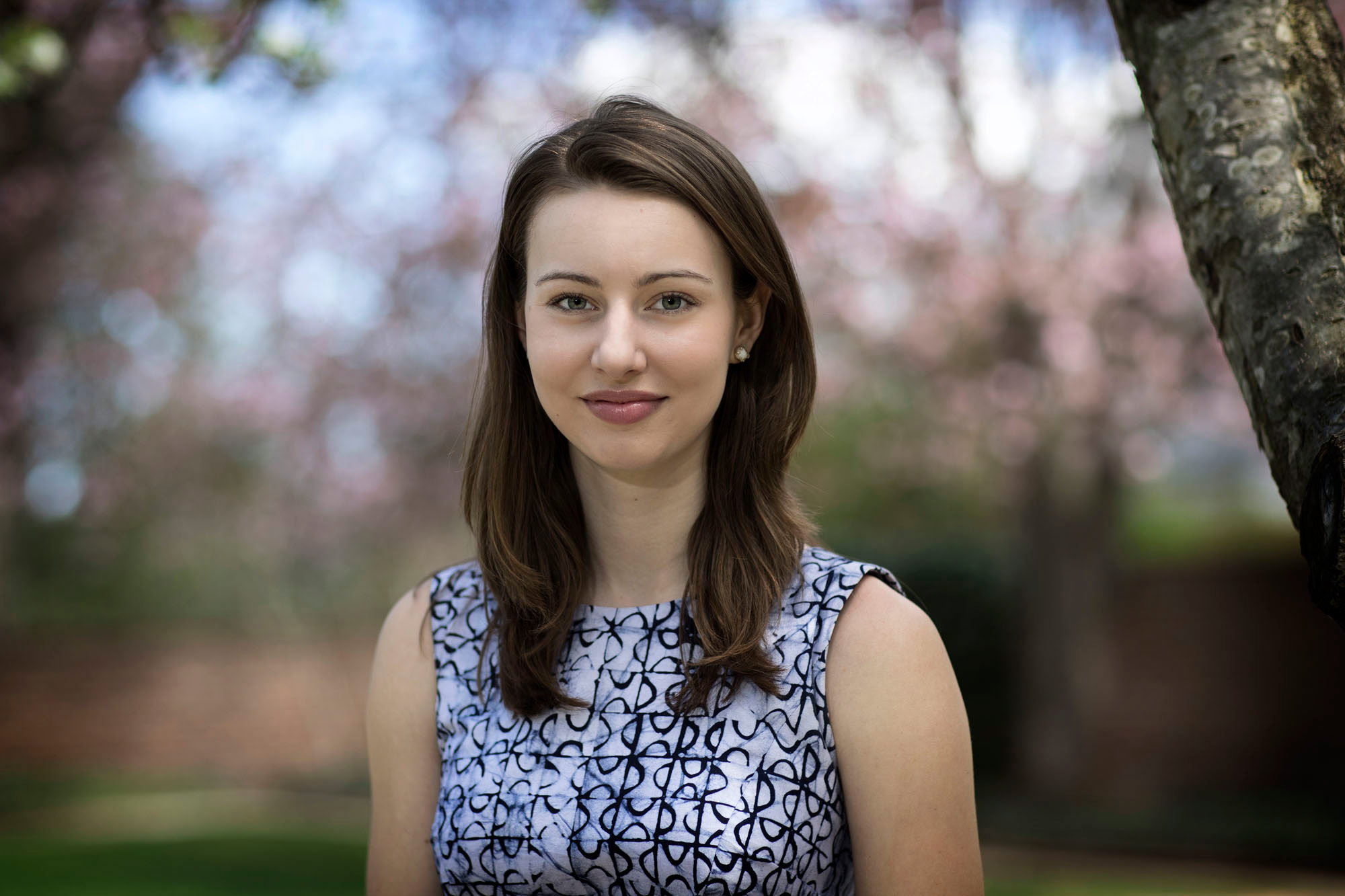Eliza Campbell arrived at the University of Virginia in 2013 full of ambition. An Echols Scholar, she had dreams of studying abroad and “making a difference.” She just wasn’t sure how to get from A to B.
“I have always been interested in global health and health care generally,” she said. “I Googled ‘ways to get involved with global health at UVA’ and came upon the Center for Global Health.”
Before long, Campbell was a member of the center’s advisory board and learned about its scholarships for undergraduate research. “That’s what really triggered my interest in doing research abroad,” she said.

But where?
A course at the Frank Batten School of Leadership and Public Policy provided the answer. “International Development Policy” tasked students with choosing a developing country and tracking its policy developments throughout the semester.
“I picked Rwanda on a whim and followed their health policy developments throughout the semester. I fell in love with the country and the incredible work they were doing in health care,” she said. More digging lead Campbell to Anisha Hegde, a second-year medical student who the Center for Global Health had funded to go to Rwanda in 2015 to work with the country’s minister of health, Dr. Agnes Binagwaho.
“She put me in touch with the minister, and the rest is history,” Campbell said. “It’s funny, because I was writing all these hypothetical policy memos to the minister of health for my class. She’s ultimately the woman I ended up working for during my internship.”
Campbell’s research undergirds a new screening tool Rwanda is using to detect depression in children.
The McLean native is earning two bachelor’s degrees, one in foreign affairs from UVA’s College of Arts & Sciences and another in public policy and leadership from the Batten School. She joined UVA Today for a conversation about her time in Rwanda and what her future holds.
Q. What did you do in Rwanda?
A. I was a child health research intern for Rwanda’s Ministry of Health, where I helped research a child mental health project the ministry was working on.
There were two very serious problems that we were seeking to address. The first is that 25 percent of children in Rwanda with HIV and other chronic illnesses are also depressed. But you have this other compounding problem: there are only five practicing psychiatrists in the entire country. Many children in Rwanda suffer from depression, but the country has very few resources to deal with it.
The minister of health came up with an innovative solution to develop a depression-screening tool that non-mental health professionals could use to identify children at risk for depression, and I helped spearhead this project.
Q. How does the tool work?
A. Teachers, nurses, community health care workers and primary care physicians use the questionnaire like a triage system. They ask children between the ages of 7 and 14 a series of questions and those children found at risk for depression are then referred to a psychiatrist. The depression-screening tool enables Rwanda to better utilize its limited resources and provide care to the children who need it most.
There are a number of similar screening tools that already exist, but they have been developed mostly in Western countries, so they are not appropriate for a country like Rwanda. Many are also copyrighted, so there is a fee associated with each use. That is unsustainable for a developing country like Rwanda. The minister wanted to create a depression-screening tool that was developed for Rwandans and that was also a free and open source other developing countries could use and adapt to their own populations.
Q. What did you recommend?
A. I presented my research findings with a couple recommendations for what the tool should look like and the mental health team incorporated some of those recommendations into the final product.
I don’t have a background in mental health, so my recommendations mostly had to do with the types of questions to ask, formatting and word choice. There were a few criteria that the minister asked me to look at – length, ages the tool was used with, reliability, and whether the tool had been validated in an East African country, like Tanzania. Ultimately, we ended up creating a brief, 10-item screening tool designed to identify children at risk for depression. Rwanda is actually the first African country to create such a tool.
Q. What was the high point of your time in Kigali, Rwanda’s capital?
A. We were preparing for a meeting with the mental health team and Dr. Binagwaho said “Oh Eliza, you’ll be sharing what you’ve been working on with the team tomorrow.” That whole night I stayed up preparing what I wanted to say, working through the research and making sure I understood what was best going forward. I ended up giving this presentation to a boardroom full of psychologists, psychiatrists [and] top child health professionals the next morning.
There I was, a rising fourth-year at the time and sharing what I had worked on – that was really fulfilling and a proud moment for me. I was well-received and I felt like I had garnered the respect of these professionals. I was just amazed that my input was valued and that they respected what I had done. I was very honored.
Q. What was it like working with the minister of health?
A. She is phenomenal and definitely my biggest inspiration. She is so committed to health care, so passionate, and so hard-working. She has inspired me to continue working in health care. I’m amazed by what she has been able to do in a country that has such limited resources and is still recovering from the 1994 genocide. Seeing how much progress has been made in health care under her leadership was phenomenal.
Getting to share little moments with her was wonderful too; like getting late-night Chinese food on a random Wednesday night, or grabbing breakfast with her – times like that were really, really special.
Q. What was it like coming back to Grounds after that?
A. When I was in Rwanda, I felt very empowered and I gained so much perspective. I really felt like I came back a more grateful person, a more understanding person – and I think that is what has translated more to my everyday life. I feel like I really appreciate my education, the opportunities I have, and the people in my life. I think that is what I have carried with me most – a sense of gratitude and a deep appreciation for what I have here.
Rwanda has made incredible progress in the last few years, but there is still a lot of poverty and people in need. That has always stuck with me and is what I carried back with me the most. There are so many things that happen in life that, in the grand scheme of things, just don’t really matter, and I think that is what has really shaped me – recognizing what’s important, letting things go, and being appreciative for what I do have.
Q. When you were a first-year student, could you have imagined going to Rwanda and having this experience?
A. No, not at all. For me, going to Rwanda was fulfilling a lifelong dream and I, as a first-year coming to Grounds, had all these ambitions and wanted to make a difference. But I didn’t think it would happen or happen on this scale. Having the opportunity to go to Rwanda and work on health policy was something I never expected. I can’t put it into words.
Q. What are your plans after graduation?
A. I’m moving to Washington, D.C., where I’ll be working for The Advisory Board Company, which is a health care research firm. I’m very excited to be continuing my passion for health care and will be working mostly on domestic issues. My experience abroad affirmed my commitment to work in health care and I could not be more excited to continue pursuing this passion.
I start July 10. For now, I’m just cherishing these last few weeks at UVA, but I think when July rolls around, I’ll be ready for the next chapter.
Media Contact
Article Information
May 3, 2017
/content/class-2017-student-found-direction-her-passion-rwanda

